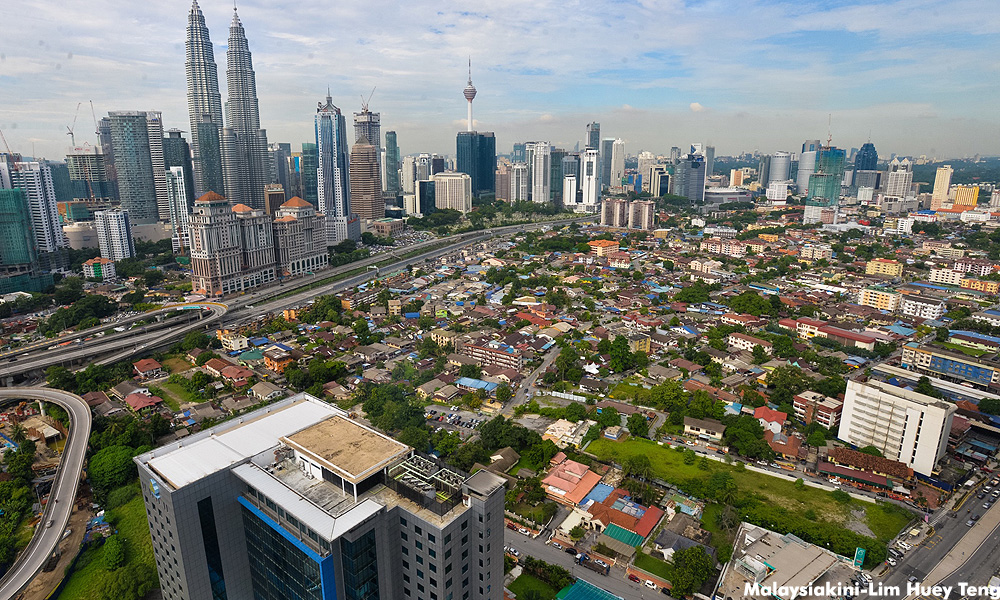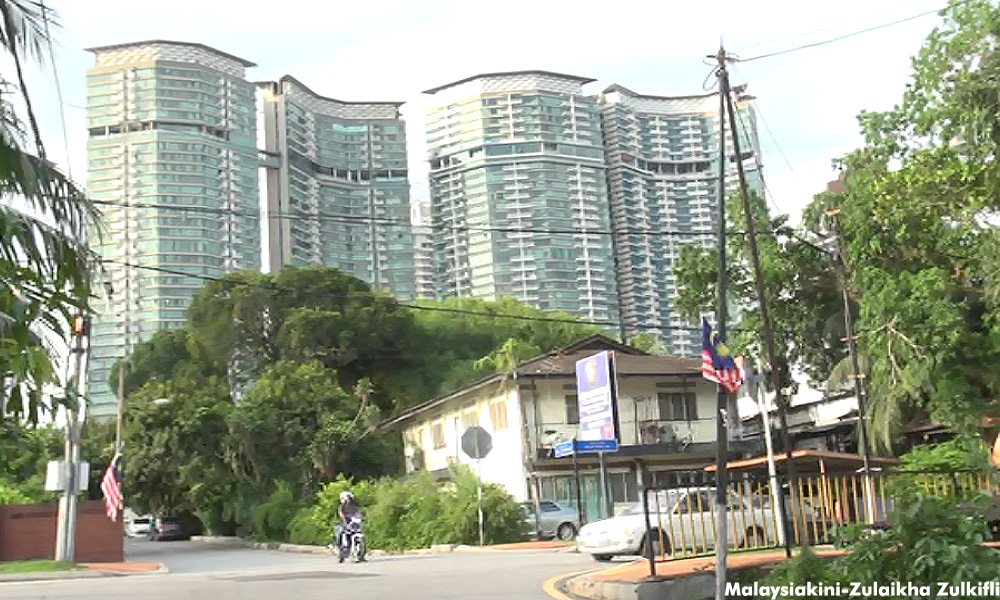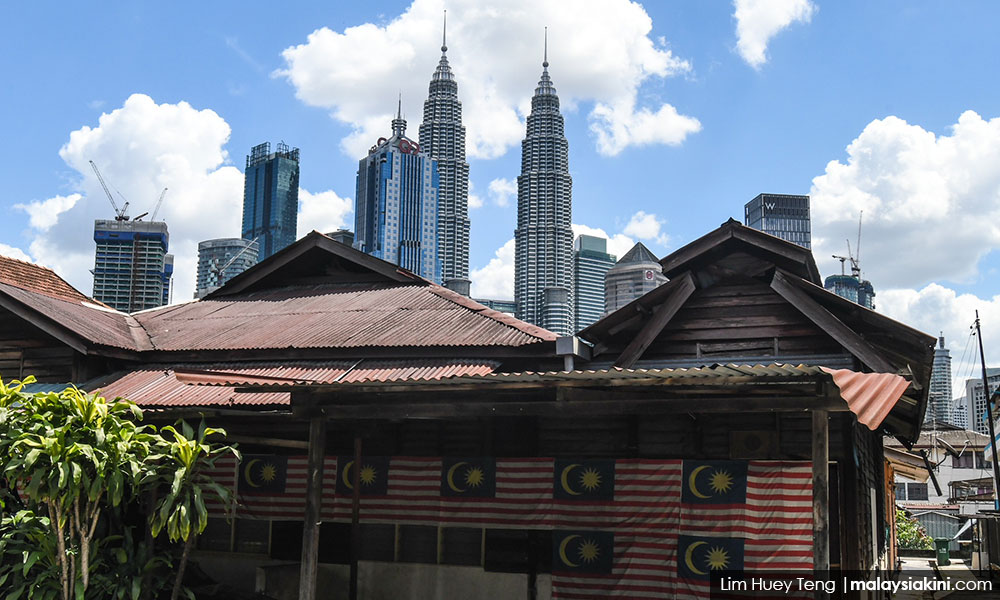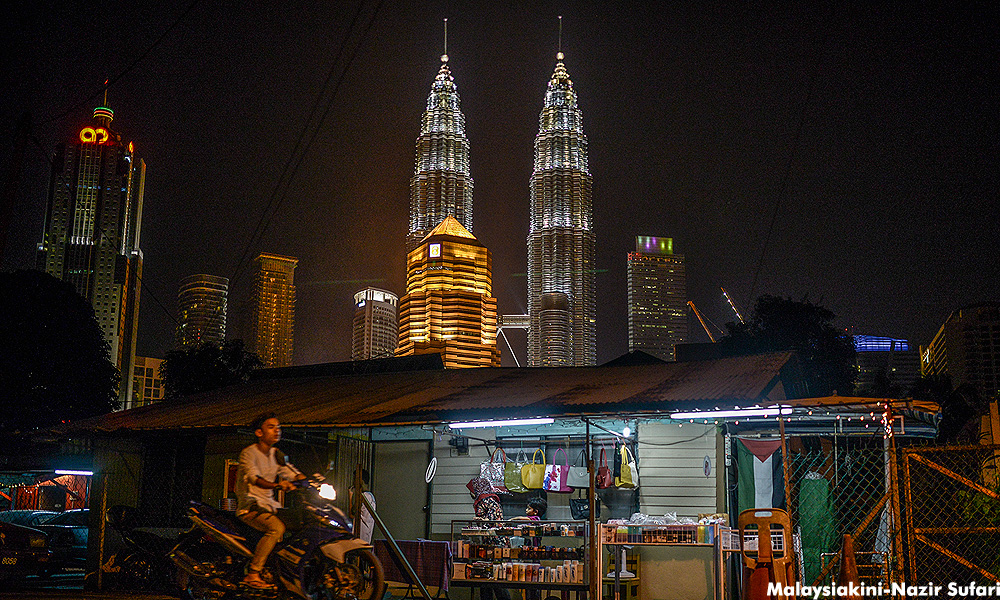Malay reserve land: Enormous potential for development

Land valuation is among the core issues that have troubled Malay reserve landowners for decades and this is something the authorities have to address in all seriousness.
Malay reserve land (MRL) is often viewed from a narrow perspective simply because dealings involving such land is restricted to the Malays. And, since the purchasing power of the Malays is quite limited, offers to develop the land are not forthcoming.
Some quarters are also pointing the finger at government-linked property developers and subsidiaries of government agencies, claiming that they are reluctant to undertake the development of MRL.
If this situation persists, Malay reserve land might as well continue being relegated to the “second-class” or “third-class” category.
Value significantly lower
Universiti Teknologi Mara (UiTM) senior lecturer Mohd Hasrol Haffiz Aliasak said basically, there was a significant difference in value between land alienated to the Malays and freehold land.
Citing the case of MRL in Kampung Baru, here, which is administered by the Malay Agricultural Settlement Board, he said although it was situated in the vicinity of prime areas such as Jalan Sultan Ismail, Jalan Ampang and Jalan P Ramlee, its land value was markedly lower.
While the commercial land in the prime locations is valued at between RM2,000 and RM3,000 per square foot (psf), the rate is only RM600 to RM700 psf in Kampung Baru, which is barely two kilometres away.
“There is a 40 percent margin of difference in their rates. If, for example, a piece of freehold land is valued at RM100,000, the value of a similar plot of Malay reserve land will only be around RM60,000 to RM70,000,” said Mohd Hasrol, who is attached to the Faculty of Architecture, Planning and Surveying at UiTM's Seri Iskandar campus in Perak.
“Such significant variations in valuation can affect the position of Malay reserve land located in urban or development areas.”
Enormous potential
Fortunately, all is not lost for MRL and Malay-owned land. Its prospects and value will improve if the land is used for high-impact development, as was proven by property developer Mohd Khay Ibrahim.
His company, Zikay Group Sdn Bhd, has built a 42-storey hotel, Tamu Hotel and Suite, at Jalan Raja Alang, Kampung Baru, which opened in February this year.
The value of this hotel, according to Mohd Khay, was on a par with similar hotels of its category located in non-MRL areas.

He said for the Malays to realise the enormous potential of their reserve land, their mindsets have to change first.
Based on his 30 years of experience in real-estate development, Mohd Kay, who was also a former member of Kampung Baru Development Corporation, has observed that the main stumbling block to the development of MRL was the multiple ownership of the plots.
He feels that the various owners who share the same land grant should reach a consensus and collaborate to pave the way for the development of their land.
He suggested that the ownership of the land be placed under one name or a company jointly set up by them.
“This land is our heritage but we have to modernise the heritage concept in the form of shareholdings.
“Just imagine, if such land is left alone and passed on to our subsequent generations, eventually there will be hundreds of names in a single land grant.
"The land is normally small in size and if it is sold, how much can each owner get?” he asked.
He opined that the government should review the existing legislation related to land ownership and consider putting a limit on the ownership of each plot of land.
Valuation factor
Selangor Bumiputera Land Developers Association president Mohammad Sahar Mat Din is of the opinion that the status of a land alone was not the main determinant of its value.
“It is the product that is developed on the land that will ultimately determine the economic value of the land,” he stressed.
He said one of the reasons Malay reserve land lagged behind in development was the failure of their owners to view their land as a strategic economic asset.

Concurring with Mohd Kay, Mohammad Sahar said many Malays tend to regard land as a heritage possession and pay no heed to its economic value.
“They don’t see its potential… especially the potential of reserve land located in the urban areas. We have to prove that we can bring about high-impact developments on Malay reserve land,” he said.
Pointing to Hotel Tamu in Kampung Baru, the Bangi Convention Centre (Bandar Baru Bangi) and the million ringgit residential properties in Sungai Ramal, Kajang and Kampung Padang Balang, Sentul, Mohammad Sahar said they were all located on MRL.
“This shows that Malay-owned land can be used for purposes other than building normal houses,” he added.
More Malay developers needed
In the context of the Pakatan Harapan government’s new Malaysia, it is hoped that its economic reforms will, among other things, also focus on the development of MRL.
Mohammad Sahar said the government should not allow the nation's property development sector to be monopolised by the big players and that it should give incentives to encourage the participation of Malay-owned companies.
“The problem now is that we are short of Malay bumiputera developers. If more bumiputeras, especially Malays, are given the space to participate, then there will be more opportunities for Malay reserve land to be developed.
“This is what the government has to look into as part of its agenda to uplift the economic development of the Malays,” he said.
For years, he added, the property development sector was controlled by non-Malay developers due to its lucrative returns.
“A single housing project, for instance, can open up several streams of business and job opportunities,” he said.
It is understood that building projects require the services of up to 140 other sectors, including the cement and brick industry, banking, insurance and building consultancies.
“Looking at its huge potential, much more has to be done to make the property development sector more popular among the Malays,” he said, adding that even now many non-Malay developers were eyeing opportunities in MRL as they knew it has good prospects.
Valuation issue
Touching on the value of MRL, Malay Consultative Council (MPM) secretary-general Hasan Mad said it depended on the location of the land concerned.
If it is located in a rural area bereft of infrastructure, the land’s value will understandably be pegged at a low rate but it is impossible for such land to be undervalued if it is located smack in the city centre.
Pointing to a piece of land at Jalan Tun Perak (formerly known as Jalan Mountbatten), Kuala Lumpur, that was endowed by an Indian Muslim millionaire named Ahmad Dawjee Dadabhoy for religious purposes, Hasan said Tabung Haji eventually put up a building there which is now rented by Bank Islam.
“The land there has good value, doesn’t it? So now the question is, is the government looking into this matter seriously and doing something to enhance the value of Malay reserve land. Let’s not be trapped by the lies of certain parties that such land has no value,” he said.
Hasan also claimed that the previous government had failed to see MRL as a mechanism to improve the economic power of the Malays.
“When the government acquired Malay reserve land that had high value for development, it was replaced with land located in the interior areas that didn’t even have proper infrastructure. How can we place a value on such land?

“If the government wants the replaced land to have some value, then it should be located in urban areas like Kuala Lumpur, Seremban, Ipoh and Johor Bahru,” he said.
The past actions of the government, he added, have not only led to an imbalance in the development of commercial land and MRL but also a demographic imbalance in terms of ethnicity in the urban and rural areas.
Set up secretariat
MPM, which has been highlighting Malay reserve land issues for several years, has also urged the state governments in Peninsular Malaysia, which have full control over land matters, to set up a secretariat to monitor developments and transactions involving MRL.
He said the sultan of each state should be made the secretariat’s patron so as to keep the ruler informed on matters pertaining to MRL, more so the issue of such land shrinking in size.
“The states have their own Malay Reservation Enactment but only enforcement is lacking. So, by setting up a secretariat (to look into the matter) it can come up with a clearer report on the problems confronting Malay reserve land,” he said, adding that states like Melaka, Kuala Lumpur and Penang which did not have rulers can raise their MRL issues with the Yang di-Pertuan Agong.
--Bernama
✍ Sumber Pautan : ☕ Malaysians Must Know the TRUTH
Kredit kepada pemilik laman asal dan sekira berminat untuk meneruskan bacaan sila klik link atau copy paste ke web server : https://ift.tt/2yGDmFa
(✿◠‿◠)✌ Mukah Pages : Pautan Viral Media Sensasi Tanpa Henti. Memuat-naik beraneka jenis artikel menarik setiap detik tanpa henti dari pelbagai sumber. Selamat membaca dan jangan lupa untuk 👍 Like & 💕 Share di media sosial anda!



















Post a Comment